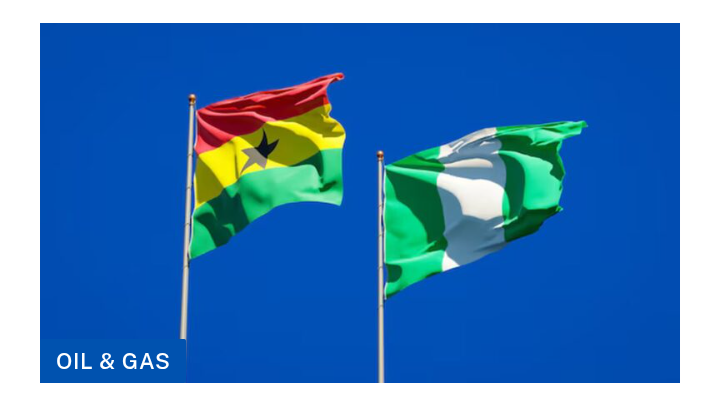Nigeria And Ghana Champions New Regional Gas Transformation Initiative

A new cooperation that will signal regional gas transformation structure is being implemented by Ghana and Nigeria after both countries negotiated an innovative barter agreement.
Under the agreement Ghana would stand the chance to convert Nigerian natural gas into electricity and export power back to Africa’s most populous nation, according to News Ghana report.
The proposed arrangement could transform regional energy cooperation by leveraging each country’s comparative advantages in gas production and electricity generation.
Nigeria possesses abundant natural gas reserves while Ghana has developed significant power generation and export capabilities.
Energy Minister John Abdulai Jinapor revealed the discussions at the Future Energy Conference in Accra, describing the plan as a model for West African integration. Ghana already imports Nigerian gas for domestic power generation and exports electricity to Togo, Burkina Faso, Côte d’Ivoire and Benin.
“We believe we can work together,” Jinapor explained. “Ghana takes gas from Nigeria, generates power, and re-exports. We are in discussions to see if we can create a barter arrangement where we take their gas, convert it into power, and supply electricity back to Nigeria.”
The deal would address critical energy challenges facing both nations. Nigeria struggles with chronic electricity shortages despite massive gas reserves, while Ghana seeks secure fuel supplies for its expanding generation capacity.
Ghana has positioned itself as a regional power hub through investments in generation infrastructure and cross-border transmission lines. The country already supplies electricity to four neighboring nations, demonstrating its potential to serve broader West African markets.
Nigeria’s energy sector faces complex challenges including inadequate generation capacity, transmission bottlenecks and distribution losses. Despite producing significant quantities of natural gas, much of the resource is wasted through flaring or limited processing infrastructure.
A successful barter arrangement could provide Nigeria with reliable electricity imports while giving Ghana guaranteed gas supplies for its power plants. This would reduce both countries’ dependence on volatile international energy markets and strengthen regional self-sufficiency.
Energy experts view the proposal as potentially transformative for West African economic integration. Stable electricity supply could accelerate industrial development across the region while reducing energy poverty that constrains millions of households and businesses.
The discussions align with broader ECOWAS goals for regional power pooling and energy market integration. Member states have long recognized that coordinated energy development could unlock economic growth and improve living standards across West Africa.
Ghana’s nuclear energy ambitions also factor into regional planning, according to Jinapor. Nuclear power could provide stable baseload electricity that supports both domestic needs and export commitments to neighboring countries.
Technical implementation would require significant infrastructure investments and regulatory coordination between both nations. Success depends on resolving pricing mechanisms, delivery schedules and quality standards for the gas-for-electricity exchanges.
The timing reflects growing recognition that energy security requires regional cooperation rather than purely national approaches. Climate change pressures and volatile global commodity prices have intensified interest in local energy partnerships.
Private sector involvement would likely be crucial for financing and operating the expanded infrastructure needed to support increased energy trade between Ghana and Nigeria. Both governments encourage investment in cross-border energy projects.
The Future Energy Conference, organized by the Africa Centre for Energy Policy, focused on mobilizing capital to address energy poverty across the continent. Discussions emphasized innovative financing mechanisms for large-scale energy infrastructure development.
If implemented successfully, the Ghana-Nigeria energy swap could serve as a template for similar arrangements between other African nations with complementary energy resources and capabilities.